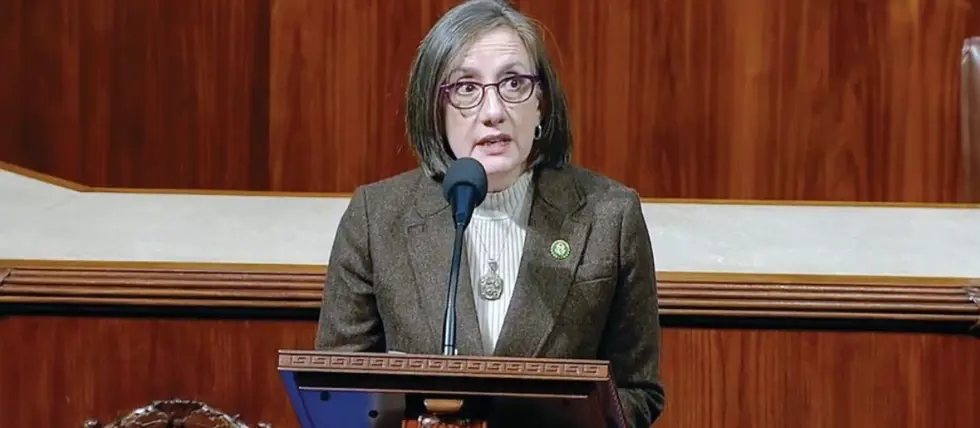Salinas' Grit Act to Combat the Rising US Gambling Addiction Rate

America's rapidly expanding gambling industry is facing increasing scrutiny and calls for accountability as it poses a potential threat to the nation's mental health. Congresswoman Andrea Salinas is leading the charge for federal government support to address rising addiction rates, but the gambling industry is pushing back hard.
Salinas' Grit Act in the Spotlight
Salinas believes that operators must be held accountable for the surge in gambling addiction cases that have accompanied the legalization of sports betting in 38 states. In 2018, the Supreme Court struck down a decades-old law banning sports betting in much of the country, leading to a boom in the industry with billions of dollars in wagers being placed each month. This growth has coincided with a spike in addiction cases, according to clinicians, counselors, and campaigners.
The Grit (Gambling Addiction Recovery, Investment and Treatment) Act, proposed by Salinas and Democratic Senator Richard Blumenthal, focuses on the federal sports excise tax, which has seen a significant increase in revenues due to the expansion of the US online gambling market. Under the proposed law, half of the tax revenues would be allocated to gambling addiction treatment, prevention, and research, without raising taxes or creating new financial burdens.
Salinas acknowledges the recreational aspect of gambling but expresses concern about the ease of access to sports betting applications, which has contributed to nearly 7 million Americans struggling with gambling addiction. Researchers have identified strong links between gambling addiction and other mental health disorders, such as alcoholism, making it a pressing issue to address.
Industry Opposition and Advocacy for Addiction Support
While proponents of the Grit Act, like Keith Whyte, executive director of the National Council on Problem Gambling, believe it will significantly enhance resources for addiction prevention, research, and treatment, the iGaming industry opposes the proposal. Chris Cylke, senior vice president at the American Gaming Association, argues that the excise tax should be repealed, asserting that it puts the legal market at a competitive disadvantage against illegal operators who do not pay taxes.
Advocates for greater support for compulsive gambling criticize the operators' objections, viewing them as short-sighted. Derek Webb, founder of the Campaign for Fairer Gambling, argues that the gambling sector must take responsibility for its impact on addiction.
Congresswoman Salinas acknowledges that passing the Grit Act may be a lengthy and challenging process, as gambling addiction rates are not receiving enough attention from politicians in Washington and beyond. However, she remains committed to addressing this growing concern and preventing a potential mental health crisis related to unchecked gambling growth.
More Responsible Gambling News
 Responsible Gambling
Responsible Gambling
Fenton Joins UK Levy Board as Debate Over Gambling Harm Funding Continues
Dec 22, 2025 Responsible Gambling
Responsible Gambling
AGCO Updates iGaming Standards Ahead of Centralized Self-Exclusion Launch
Dec 19, 2025RELATED TOPICS: Responsible Gambling
Most Read
Fenton Joins UK Levy Board as Debate Over Gambling Harm Funding Continues
Dec 22, 2025Florida Man Arrested in Alleged Hurricane-Related Construction Fraud Targeting Elderly
Dec 23, 2025Must Read
 Interviews
Interviews
Exclusive Interview: Levon Nikoghosyan Shares AffPapa Winning Formula for Successful iGaming Events
Dec 03, 2025 Interviews
Interviews







Review this New Post
Leave a Comment
User Comments
Comments for Salinas' Grit Act to Combat the Rising US Gambling Addiction Rate